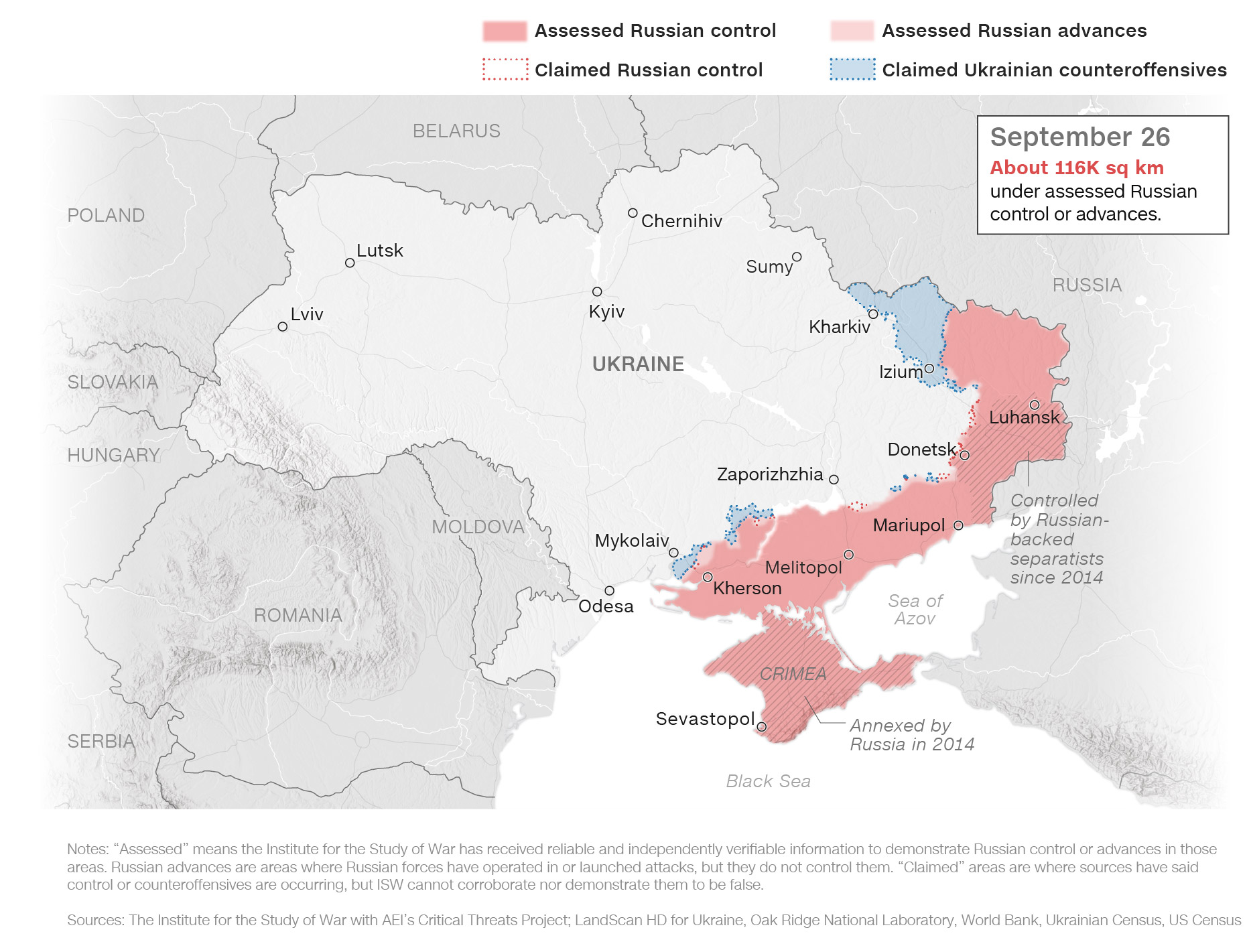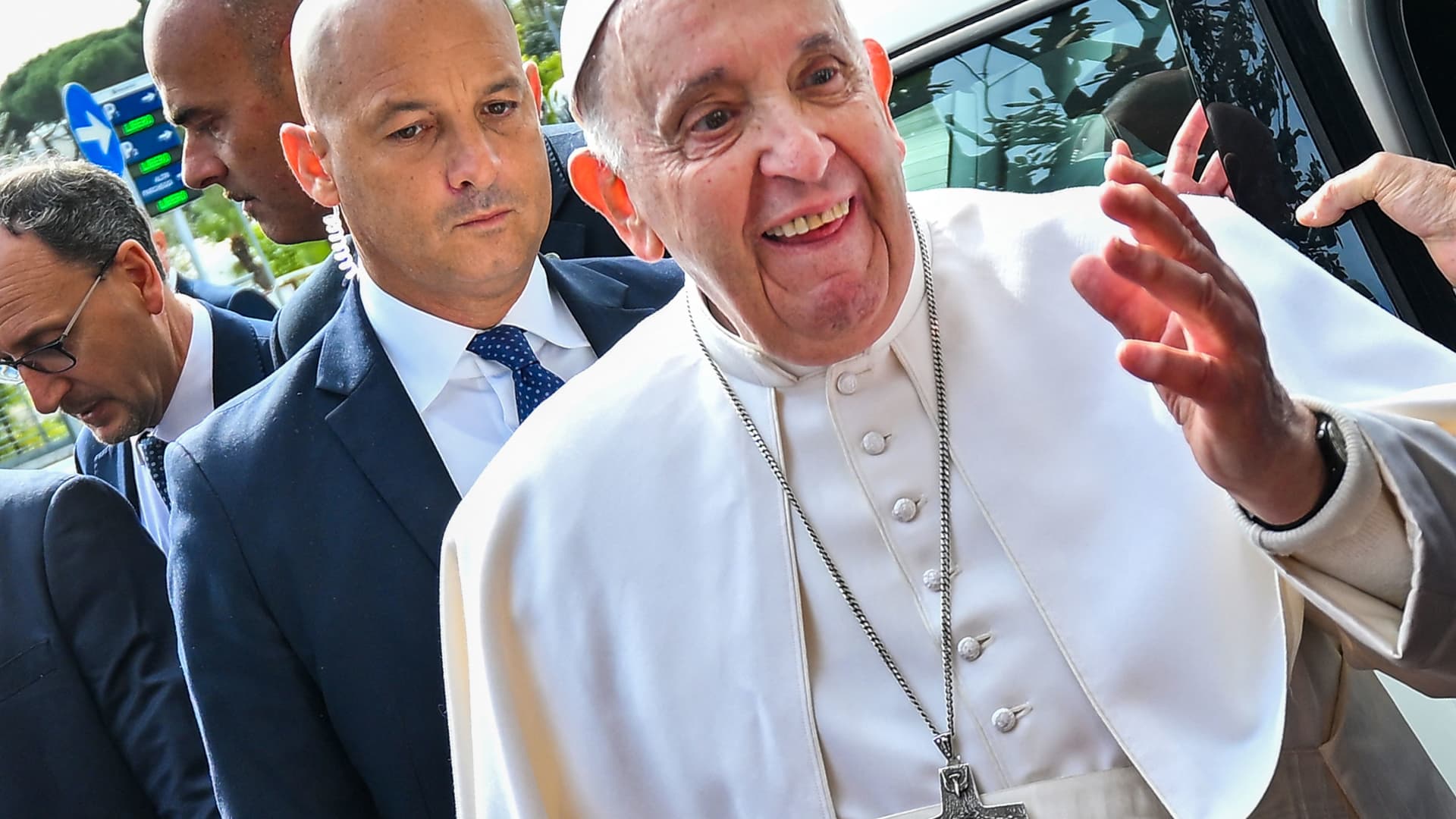Ukraine Conflict: Kyiv Under Pressure To Respond To Trump's Proposal

Table of Contents
The Nature of Trump's Proposal and its Implications
Unclear Details and Speculation
The lack of transparency surrounding Trump's proposal has fueled widespread speculation and diverse interpretations in the media. The vagueness itself contributes to the pressure on Kyiv.
- Territorial Concessions: Some interpretations suggest the proposal involves Ukraine ceding territory to Russia, a deeply unpopular notion within Ukraine.
- Negotiated Settlements: Others posit that Trump advocates for a negotiated settlement, potentially involving compromises on disputed territories or security guarantees.
- Ceasefire Conditions: A less discussed aspect focuses on potential conditions for a ceasefire, potentially requiring Ukrainian concessions regarding military actions or troop deployments.
The potential impact of each interpretation is vastly different. Territorial concessions could be seen as a betrayal of national interests, undermining public support for the government. A negotiated settlement, depending on its terms, might offer a path to de-escalation but could also be perceived as capitulation to Russian aggression. The focus on ceasefire conditions reveals a potential pathway to peace, but the details would determine whether the conditions would be seen as fair and realistic.
Domestic Political Fallout in the US
Trump's proposal has sparked intense debate within the US political landscape.
- Republican Support: Some Republicans have voiced support for Trump's initiative, arguing for a diplomatic solution to end the conflict, prioritizing the avoidance of further US military involvement.
- Democratic Criticism: Democrats have largely criticized the proposal, viewing it as potentially harmful to Ukrainian sovereignty and rewarding Russian aggression. This division reflects deeper partisan divides on foreign policy within the US.
This internal US debate significantly influences the pressure on Kyiv. A divided US response weakens the unified international front against Russia, making it harder for Kyiv to resist pressure for concessions. A strong, unified US stance, however, would reinforce the international pressure on Russia and embolden Ukraine to hold firm.
Kyiv's Dilemma: Balancing Pressure and National Interests
Public Opinion and National Sentiment
Within Ukraine, public sentiment strongly favors resisting Russian aggression. However, this unity isn't absolute.
- Resistance to Russian Aggression: The overwhelming majority of Ukrainians support defending their territorial integrity and oppose any concessions that would legitimize Russia's actions.
- Potential Internal Divisions: Despite the overarching national unity, some internal divisions might exist regarding the best strategy for achieving peace, possibly creating internal political pressure on Kyiv.
- Ukrainian Nationalism: Strong Ukrainian nationalism fuels the determination to resist Russian pressure and maintain national sovereignty, presenting a major obstacle to any proposal that involves territorial concessions.
Public opinion significantly constrains Kyiv's options. Any perceived capitulation could trigger widespread public discontent and potentially destabilize the government. This factor puts enormous pressure on Kyiv's leadership to carefully weigh the risks and benefits of any response to Trump's proposal.
International Allies and their Stance
Kyiv's key allies have varying perspectives on Trump's proposal, adding another layer of pressure.
- EU and NATO Support: The EU and NATO have generally expressed support for Ukraine's sovereignty and territorial integrity, reinforcing the pressure on Russia and dissuading Kyiv from making significant concessions.
- Potential Disagreements: However, subtle disagreements might exist among allies regarding the optimal strategy for ending the conflict, adding further complexity to the decision-making process in Kyiv.
- Maintaining a United Front: The pressure on Kyiv to maintain a united front with its allies remains significant. Deviating from this stance could risk losing crucial military and financial aid, further complicating the situation.
The international response shapes Kyiv’s strategic calculations, creating a delicate balance between maintaining national interests and securing continued support from vital allies. Any perceived wavering could jeopardize this crucial support.
Potential Responses and their Consequences
Rejection and Continued Resistance
Kyiv could reject Trump's proposal outright, continuing its resistance against Russian aggression.
- Maintaining National Sovereignty: This stance would uphold Ukraine's principles and strengthen its national identity, maintaining public support.
- Risks of Escalation: However, this path carries risks of further escalation, potentially leading to increased military conflict and further losses. This could also alienate some international actors less committed to the conflict.
- Loss of International Support (unlikely): While unlikely given current international support for Ukraine, there is a slight risk of losing international support if this strategy is perceived as unnecessarily provocative or uncompromising.
A resolute Ukrainian stance carries significant geopolitical implications. It could solidify support from unwavering allies but might also lead to a protracted conflict with unpredictable outcomes.
Negotiation and Potential Compromises
Alternatively, Kyiv could engage in negotiations based on Trump's proposal, exploring potential compromises.
- Risks of Ceding Territory: This path carries risks of ceding territory, potentially weakening Ukraine's long-term security and facing backlash from the Ukrainian public.
- Potential Benefits of De-escalation: It could lead to de-escalation, reducing the immediate risk of further military conflict and saving lives.
- Long-Term Implications for Ukrainian Security: Negotiating a peace agreement will have far-reaching consequences for Ukrainian security and future relations with Russia, requiring careful consideration of long-term impacts.
The potential gains and losses under different negotiation scenarios are immense, requiring cautious deliberation and astute diplomatic maneuvering by Kyiv.
Conclusion
The Ukraine conflict and the pressure on Kyiv to respond to Trump's proposal highlight a complex interplay of domestic and international factors. Balancing public opinion, securing international support, and preserving national interests requires delicate navigation. Kyiv faces a challenging decision, each option with significant risks and benefits. The potential for escalation or de-escalation hinges on its response.
The Ukraine conflict and Kyiv's response to Trump's proposal remain a critical issue demanding continued attention. Stay informed on the latest developments to better understand the evolving geopolitical landscape and the implications for the future of Ukraine. Further analysis is needed to fully grasp the intricacies of this crucial moment in the Ukraine conflict and Kyiv's response to external pressures.

Featured Posts
-
 Car Dealers Renew Opposition To Ev Mandates Industry Fights Back
Apr 22, 2025
Car Dealers Renew Opposition To Ev Mandates Industry Fights Back
Apr 22, 2025 -
 Over The Counter Birth Control A Post Roe Game Changer
Apr 22, 2025
Over The Counter Birth Control A Post Roe Game Changer
Apr 22, 2025 -
 The Complexities Of Automated Nike Sneaker Manufacturing
Apr 22, 2025
The Complexities Of Automated Nike Sneaker Manufacturing
Apr 22, 2025 -
 Razer Blade 16 2025 Ultra Thin Laptop Review Performance And Price Analysis
Apr 22, 2025
Razer Blade 16 2025 Ultra Thin Laptop Review Performance And Price Analysis
Apr 22, 2025 -
 88 Year Old Pope Francis Passes Away After Pneumonia Illness
Apr 22, 2025
88 Year Old Pope Francis Passes Away After Pneumonia Illness
Apr 22, 2025
